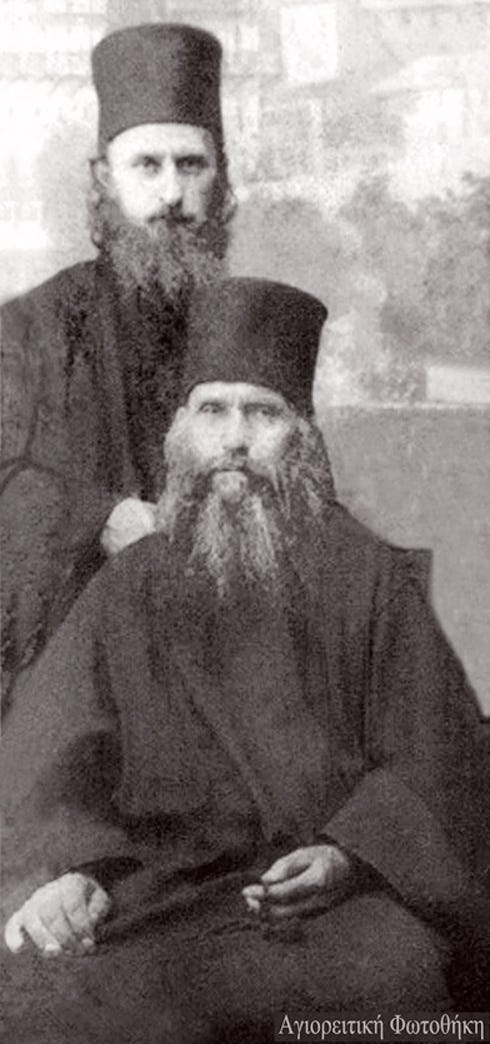I asked, and many asked me what the saying “Keep thy mind in hell, and despair not” means. That uneducated peasant [Silouan] understood it at once, and he did as the Lord told him. And it is an extraordinary saying whose dimensions I understand more and more, and I spoke about this. In two words, if you would like: “Keep thy mind in hell” I paraphrase as “be realistic.” You see yourself as sinful, well that is what you are. Do not compare yourself to someone else, do not comfort yourself with anything, do not try to not be sinful, but confess: “This is what I am.” “Despair not” means that [this state of sinfulness] does not signify that God has forsaken or will forsake you, but that you can begin from where you are and not from somewhere else. God takes you from there, and you must be aware of what you are so that God can begin to work out your salvation, that is, for you to do it by praying—we do not have the power [to do it] because we are created, and God gives us the power through our prayer, and this is how the road to salvation begins: from where we are.
And Saint Sophrony told someone in the West—with all her Western mentality and mannerisms—who asked him “How should I pray to God?” and Saint Sophrony responded: “You do not need to be polite with God. Pour out your heart to Him just as it is, and let Him work.” That person discovered a prayer, it seems at the beginning, of such intensity that she would put her head on the floor at night and would weep all night in prayer. And she would weep—I am not talking about whimpering, but an intensity of prayer that took hold of her all night sometimes. And she became Orthodox.
Excerpt from a conference held on May 30, 2013 in Cluj, Romania







This is probably the best explanation for us in "the world" which I've read concerning these Divine words revealed to St. Silouan. Some commenters feel the need to apply them to us with the same intensity as the saint received and lived them, which seems to me a fairly big mistake. Or, others, recognizing this, warn against trying to apply them at all, which kind of turns it into theological speculation.
I do like that St. Sophrony said that the true meaning of these words is a true mystery, perhaps unattainable to us, but I don't think he meant it was something that can never be useful. Fr. Noica really helps us put this on the right place before us, I think.
Thank you so very much for this wonderful gift. I needed to read this and God sent you to me. Again God bless 🙏🙏